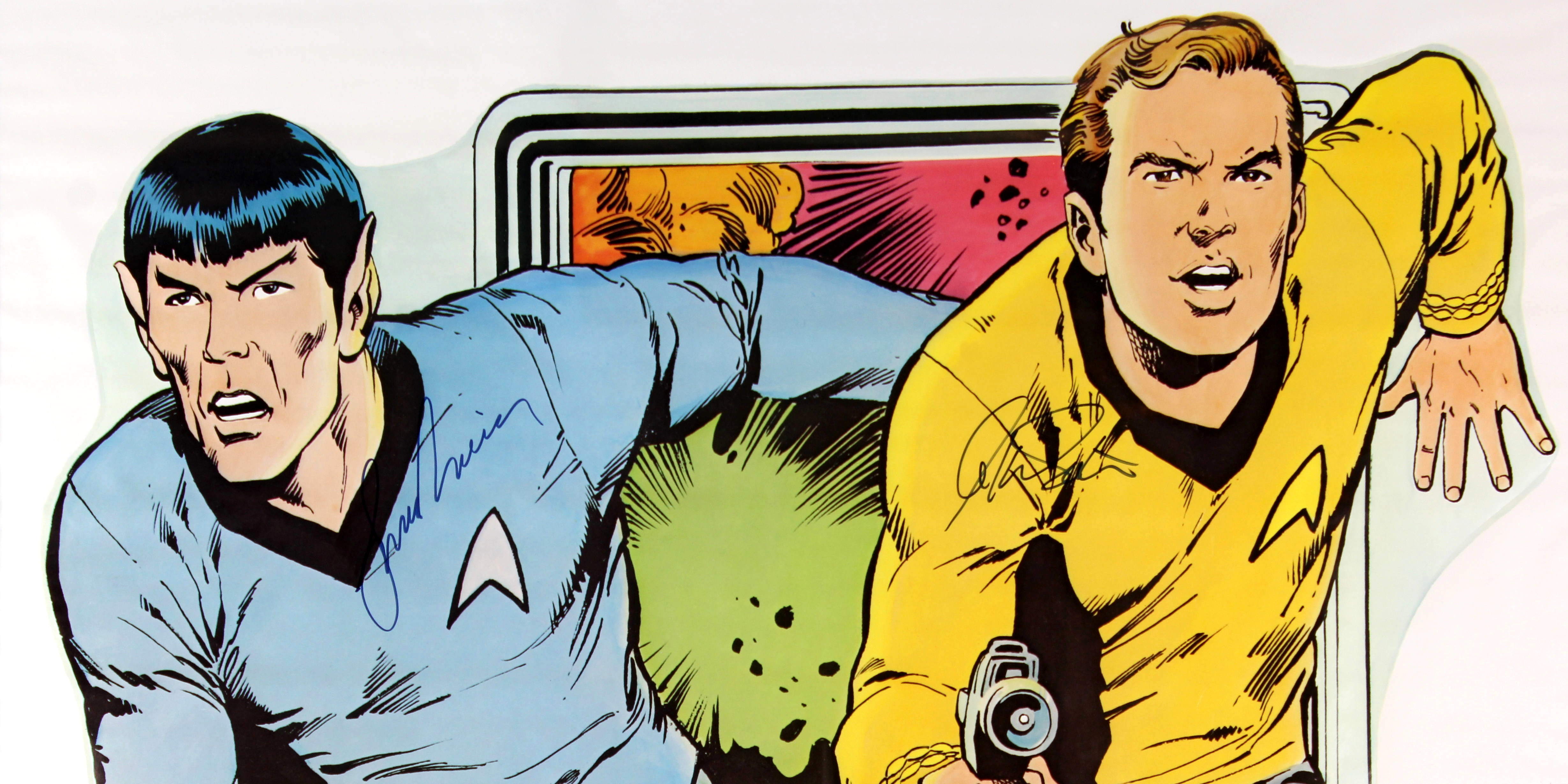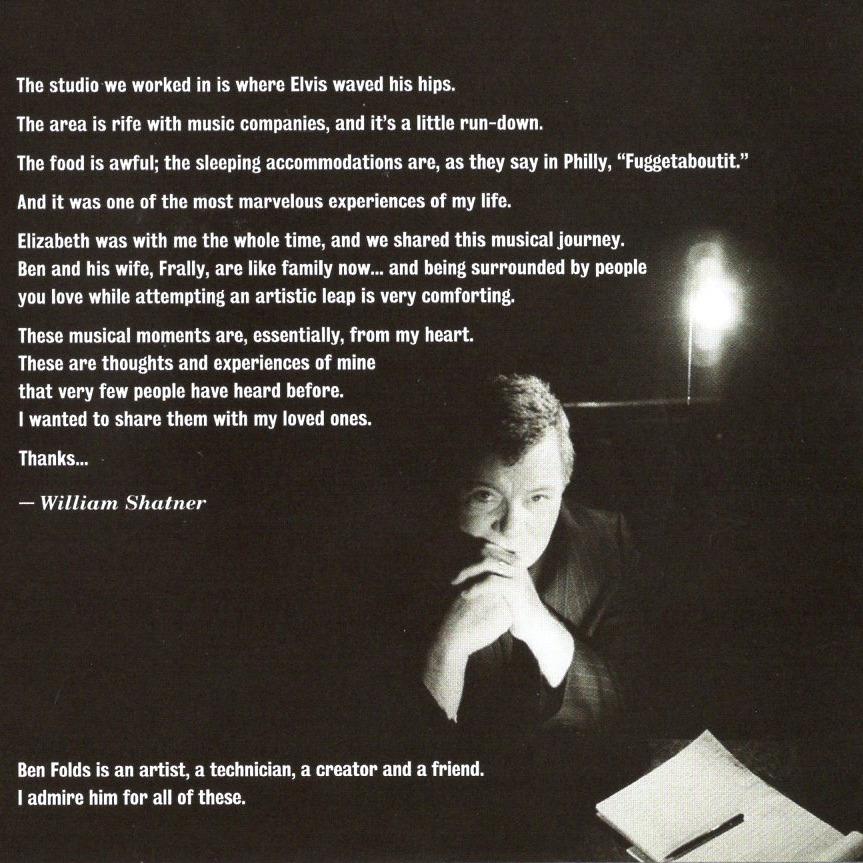One of William Shatner’s most intriguing aspects is his introspection. He is genuinely interested in how humans work and how he works.
He has examined human nature in many interviews and autobiographical books, but two pieces of audio separated by almost three decades also provide compelling musings about the actor and the individual.

The first comes from Inside Star Trek, a fascinating album of interviews and character sketches Gene Roddenberry recorded in 1976. The opening track is a chat with Shatner, and here is their first exchange.
Roddenberry: There are some questions I have been wanting to ask you for 10 years. One of them is, how much of Bill Shatner is Captain Kirk?
Shatner: Well, Gene, the act of putting on a…television series is such a backbreaking, all-encompassing task, the hours we put in are so enormous, that to be able to make up a character and sustain that for the years that we did it would be impossible I think for anyone, but certainly impossible for me, so what essentially comes out is William Shatner himself, as himself, saying the lines that were written for me to say… I think that the people you see on television, playing leads in television series, that’s what they’re like. When people ask ‘What is so-and-so really like?’…what you’re seeing is what you’re getting.”
Roddenberry: How did Captain Kirk, the character, the strong, the usually wise commander of the vessel, how much of that influenced you and your personality?
Shatner: I don’t think I carried home any of the characteristics of Captain Kirk, other than as I’ve just said those characteristics that were me. But the wisdom, and the sagacity, and the courage that Captain Kirk evidenced in the play of the week was written as fiction, and I often wished that I could be able to do that in my own personal life, but fallible me is…fallible me.

“I often wished that I could be able to do that in my own personal life.” Shatner revisited that conclusion on 2004’s Has Been, easily his greatest album. And if you think I’m grading on a curve anchored on one end by Mr. Tambourine Man and on the other by Lucy in the Sky with Diamonds, you haven’t listened to Has Been. It’s truly excellent.
The second piece of audio is the last track on the album, called Real and performed with Brad Paisley and written by him for Shatner. The song neatly sums up Shatner’s feelings about himself.
And while there’s a part of me
In that guy you’ve seen
Up there on the screen
I am so much more
And I wish I knew the things you think I do
I would change this world for sure
But I eat and sleep and breathe and bleed and feel
Sorry to disappoint you
But I’m real
I’d love to help the world and all its problems
But I’m an entertainer, and that’s all
So the next time there’s an asteroid or a natural disaster
I’m flattered that you thought of me
But I’m not the one to call
Leonard Nimoy obviously spent a lot of time thinking about this same issue; he wrote two books — I am Not Spock and I Am Spock — to work out where he and the character stood. In an interview recorded in 1976, the same year as Shatner’s discussion with Roddenberry, Nimoy said about his first book:
The title is really a simple statement of fact, I am not Spock. In the sense that I am the actor who played the role, of course I am Spock, but in the sense of true identity, I am not. I am someone else.
Shatner would agree, and it’s so interesting that two men with such different approaches to the craft would also be caught up in the meaning of character.
The persona we see on screen is Bill Shatner, because it was simply too much work to do otherwise on a weekly series, but Shatner is not Kirk. Fallible me is…fallible me, he said. Not a hero.
But he is certainly a thoughtful artist who spent decades pondering some big questions, and still does.

